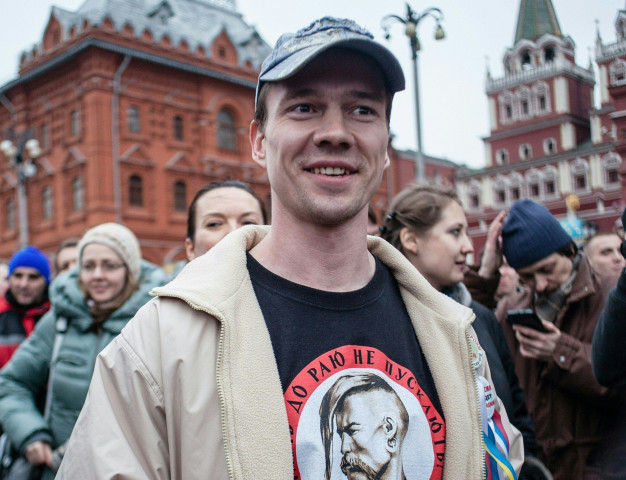Russian opposition activist leaves jail after court scrapped conviction
Activist alleged he was subjected to physical torture by prison staff while in a penal colony

Manezhnaya Square shows Ildar Dadin participating in a rally in support of anti-government activists detained in Moscow's Bolotnaya Square. PHOTO: AFP
on Sunday.
Dadin's release had been expected after the Supreme Court had overturned his conviction on Wednesday.
He was originally sentenced in December 2015 to three years in jail – later reduced on appeal to two-and-a-half years – for staging a series of peaceful, one-man protests against the government.
Conducting protests without official permission was previously punishable by a fine.
'Putin-mask' protester seeks asylum in Ukraine
But rules adopted after mass protests in Moscow that followed President Vladimir Putin's 2012 election made it a criminal offence, punishable with a jail term, to stage protests more than twice in 180 days.
Dadin alleged that he was subjected to physical torture by prison staff while in a penal colony in north-west Russia – an allegation that officials denied.
He became a cause celebre among Kremlin opponents who say their right to dissent is being steadily crushed.
Lawyer Ksenya Kostromina said Dadin's release had been delayed until Sunday because it took several days for the Siberian jail to receive his documents from the court due to a combination of bureaucratic red tape, a public holiday, and the weekend.
The lawyer said she had been informed of Dadin's release in a phone call from his wife, Anastasia Zotova, but had not met him yet.
"According to pictures, he looks good," Kostromina added.
Russian Constitutional Court had on February 10 ordered a review of Dadin's conviction, arguing that the law criminalising certain types of protests had to be applied more proportionately.
That was followed by the Supreme Court decision last week



















COMMENTS
Comments are moderated and generally will be posted if they are on-topic and not abusive.
For more information, please see our Comments FAQ